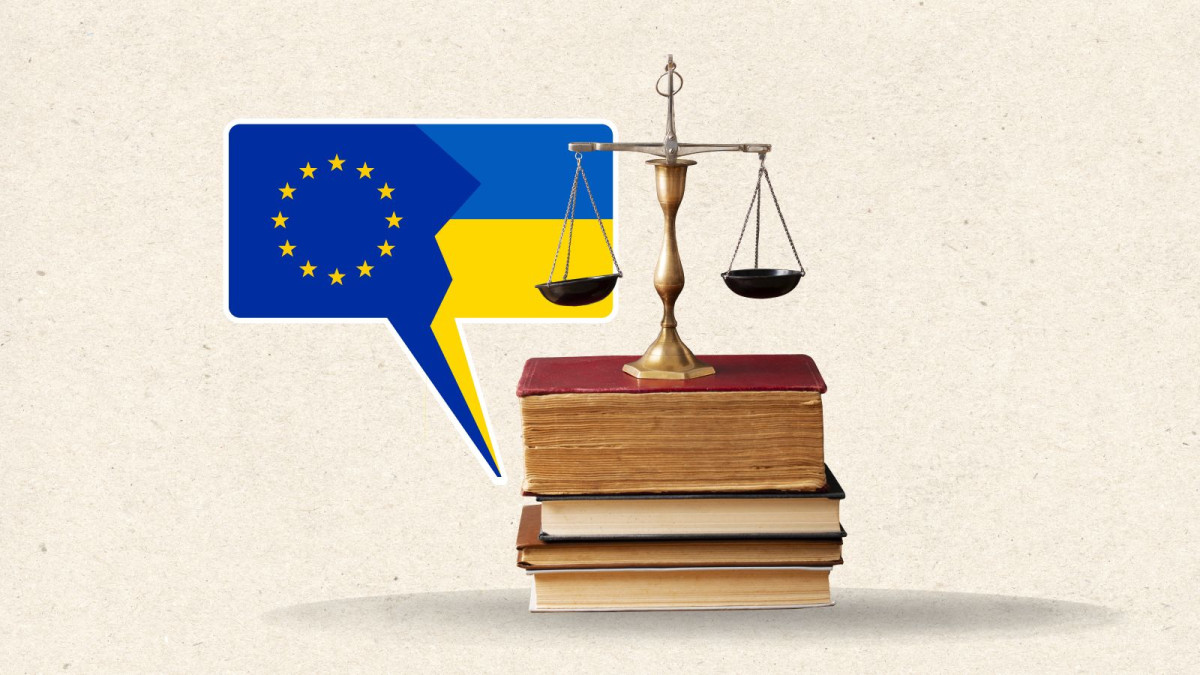

Transparency International Ukraine, in partnership with The Agency for Legislative Initiatives (ALI), the Human Rights Centre ZMINA, Tomorrow’s Lawyer, Europe Without Barriers, the Ukrainian Bar Association, and European Pravda, with the support of the EU Project Pravo-Justice, has released a Shadow Report complementing the European Commission’s 2024 Report on Ukraine.
The document assesses Ukraine’s progress under Chapters 23 (“Judiciary and Fundamental Rights”) and 24 (“Justice, Freedom and Security”) of Negotiation Cluster 1, “Fundamentals of the Accession Process”. Progress in this cluster plays a decisive role in Ukraine’s EU accession negotiations.
The period reviewed by experts spans from September 2024 to August 2025 for Chapter 23 and includes earlier data up to August 2025 for Chapter 24. One of the key achievements during this period was the approval of the Rule of Law Roadmap, whose recommendations will serve as guidance for opening negotiations under Cluster 1. The roadmap is the result of close cooperation between state authorities, civil society representatives, and international experts.
The Shadow Report highlights not only Ukraine’s progress but also the challenges and shortcomings in implementing European standards in areas such as the rule of law (courts, prosecution, legal profession, legal education), the fight against corruption and organised crime, the protection of fundamental human rights and freedoms, as well as visa policy, migration and related fields.
Experts from the participating civil society organisations (CSOs) have formulated over 500 recommendations, ranging from legislative amendments to institutional reforms. These are designed to help public authorities address current challenges, secure sustainable results and, together with international partners, set clear reform priorities.
“Over the past year, Ukraine’s anti-corruption system has demonstrated both resilience and vulnerability. On the one hand, the NABU, the SAPO, and the HACC continue to deliver results and strengthen their institutional capacity. On the other hand, we have witnessed alarming attempts to undermine their independence, as well as continued delays in addressing chronic procedural issues. This shows how fragile the achievements in the fight against corruption remain without consistent strategy and political will. We have described these and other pressing issues in detail in our sections of the Shadow Report” — said Andrii Borovyk, Executive Director of Transparency International Ukraine.
The preparation of shadow reports is a standard practice for all EU candidate countries. In Ukraine, this work has been carried out systematically since 2024, when a coalition of CSOs first produced an alternative analysis to the European Commission’s Report. That document was positively received by the European Commission and the expert community, with its recommendations subsequently reflected in the Rule of Law Roadmap.
“European integration is a nationwide project for which the state, civil society, business and international partners must all work together. The shadow report is a medium for such dialogue, as its independent conclusions and recommendations can form the foundation for practical steps in the area of reform. The EU Project Pravo-Justice systematically supports this cooperation, because it is the synergy between the state and the civil sector that guarantees successful change,” emphasised Oksana Tsymbrivska, Team Leader of the EU Project Pravo-Justice.
Despite the challenges surrounding the opening of Cluster 1, Ukraine must continue to pursue reforms with consistency and strengthen its institutions, demonstrating its ability to meet European standards regardless of external political dynamics. This approach not only enhances the prospects for successful accession negotiations but also reinforces the state from within. The 2025 Shadow Report, prepared by the CSO coalition, serves as an important instrument for public oversight — helping to identify gaps and encouraging more effective implementation of reforms that bring Ukraine closer to EU membership.
The Report includes the following sections:
- Judicial and prosecution reform, combating organised crime (selected topics excluded), cooperation in the field of drug control, counter-terrorism and judicial cooperation in criminal, civil and commercial matters — Agency for Legislative Initiatives;
- Fighting corruption and certain aspects of combating organised crime — Transparency International Ukraine;
- Protection of fundamental rights and freedoms, selected topics on combating organised crime, legal and illegal migration and granting asylum to refugees (asylum seekers) — the Human Rights Centre ZMINA;
- Bar reform — Tomorrow’s Lawyer;
- Legal education reform — Ukrainian Bar Association;
- Visa policy, Schengen and external borders, certain aspects of legal and illegal migration and euro counterfeiting — Europe Without Barriers.
The Shadow Report was prepared by a coalition of civil society organisations, led by the Agency for Legislative Initiatives, within the framework of the EU Project Pravo-Justice grant, implemented by Expertise France. Its contents are the sole responsibility of the authors and do not necessarily reflect the position of the European Union.
Over the past year, Ukraine’s anti-corruption system has demonstrated both resilience and vulnerability. On the one hand, the NABU, the SAPO, and the HACC continue to deliver results and strengthen their institutional capacity. On the other hand, we have witnessed alarming attempts to undermine their independence, as well as continued delays in addressing chronic procedural issues. This shows how fragile the achievements in the fight against corruption remain without consistent strategy and political will.
Andrii Borovyk






